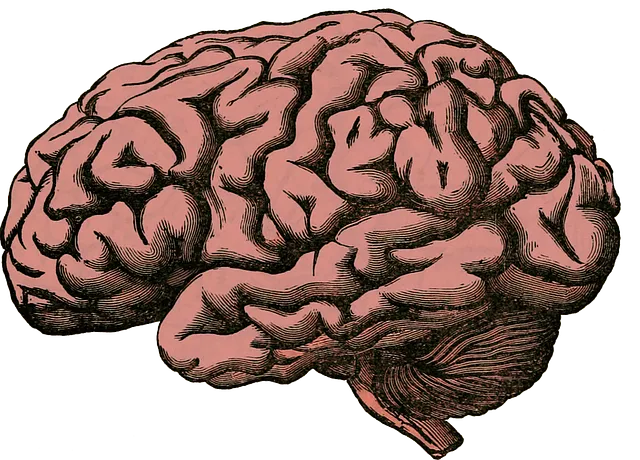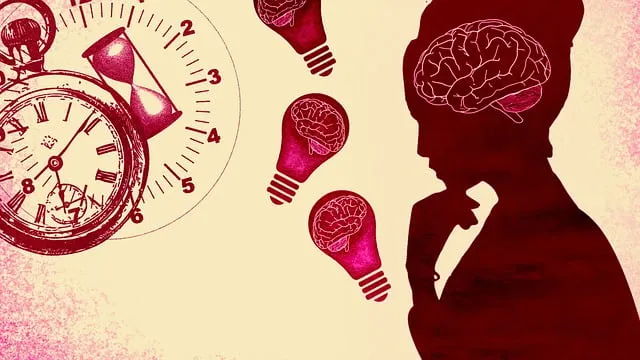Media portrayals significantly impact public perceptions of mental health, either positively or negatively. Accurate and empathetic media representation reduces stigma and encourages help-seeking behaviors, as shown by studies from the Kaiser Permanente Mental Health Department. Negative stereotypes can lead to misperceptions and delays in diagnosis and treatment. The Kaiser Permanente mental health department phone number in Parker offers guidance, emphasizing the importance of accurate media depiction in fostering open discussions about mental wellness. Organizations like Stress Management Workshops counter negative portrayals through initiatives focused on self-esteem improvement and destigmatization. By collaborating with media outlets and providing resources, Kaiser Permanente promotes diverse, authentic mental health representations, challenging stereotypes and empowering individuals to seek support.
In today’s digital age, media portrayals significantly shape public understanding of mental illness, influencing perceptions and fostering stigma. This article delves into the challenge of inaccurate representations and offers solutions inspired by innovative initiatives like Kaiser Permanente’s mental health department. We explore strategies to combat stereotypes, emphasizing the importance of diverse, accurate depictions. By examining real-world examples, including Kaiser Permanente’s approach, we empower positive change in media content related to mental health, encouraging open conversations and improved support systems for all. For more information on resources, contact the Kaiser Permanente mental health department at [phone number].
- Understanding the Impact of Media Portrayals on Mental Health Perception
- The Current State: How Media Often Misrepresents Mental Illness
- Kaiser Permanente's Approach to Promoting Accurate Mental Health Depictions
- Effective Strategies for Challenging Stereotypes in Media Content
- Empowering Change: Encouraging Positive Mental Health Representations
Understanding the Impact of Media Portrayals on Mental Health Perception

Media portrayals significantly shape public perceptions about mental health, influencing how individuals understand and respond to various conditions. The way mental illness is depicted in films, television shows, and news reports can either promote empathy and understanding or perpetuate harmful stereotypes. For instance, a study by the Kaiser Permanente Mental Health Department found that positive media representation of individuals with depression led to reduced stigma and increased help-seeking behaviors among viewers. Conversely, negative or inaccurate portrayals can contribute to misperceptions, leading to a delay in diagnosis and treatment.
This impact is particularly relevant when considering the resources available for support, such as the Kaiser Permanente mental health department phone number (Parker), which serves as a crucial point of contact for those seeking guidance. Accurate media representation encourages people to initiate conversations about their mental wellness and explore options like Self-Awareness Exercises and Depression Prevention programs, ultimately fostering a culture of Mental Wellness Coaching Programs Development.
The Current State: How Media Often Misrepresents Mental Illness

The current state of mental illness representation in media often paints an inaccurate and harmful picture. Media outlets frequently portray mental health conditions in a simplistic or sensationalized manner, reinforcing stereotypes and misunderstandings. According to research from Kaiser Permanente’s mental health department, many popular depictions fail to capture the complexity and diversity of lived experiences, leading to misinformed public perceptions. This misrepresentation can have devastating consequences for individuals struggling with mental illness, perpetuating stigma and hindering access to support.
For instance, conditions like depression or anxiety are often shown as temporary or easily solvable, without acknowledging the chronic nature or severity that many face. The media’s tendency to focus on dramatic recovery stories or one-dimensional characters reinforces the idea that mental illness is a personal weakness rather than a valid health concern. This not only affects how viewers understand their own experiences but also influences societal attitudes, potentially deterring individuals from seeking necessary help. Organizations like the Stress Management Workshops and self-esteem improvement initiatives can play a vital role in countering these negative representations by promoting accurate information and fostering a more compassionate understanding of mental health issues, as highlighted in various mental health policy analyses and advocacy efforts.
Kaiser Permanente's Approach to Promoting Accurate Mental Health Depictions

Kaiser Permanente, a leading healthcare organization, has taken a commendable step towards promoting accurate and empathetic representations of mental health in media. Their dedicated Mental Health Department actively engages in initiatives that challenge stereotypes and provide educational resources to both the public and industry professionals. Through various programs, Kaiser Permanente aims to bridge the gap between reality and portrayal, ensuring a more nuanced understanding of mental illness.
One notable approach is their focus on community engagement and education. They offer comprehensive Mental Health Education Programs designed to increase awareness, dispel myths, and foster open conversations. These programs include interactive workshops, webinars, and resources like a Mental Wellness Journaling Exercise Guidance to empower individuals to share their experiences. Additionally, Kaiser Permanente’s team collaborates with media outlets, providing expert insights and consulting services to ensure responsible and respectful depiction of mental health struggles in entertainment and news coverage. Contacting the Kaiser Permanente mental health department via their phone number in Parker can offer further access to these valuable resources and initiatives.
Effective Strategies for Challenging Stereotypes in Media Content

Media has a significant impact on shaping societal perceptions, including those related to mental health. To challenge stereotypes, it’s crucial to integrate diverse and accurate representations in various forms of media content. One effective strategy is to showcase individuals with mental health conditions as multidimensional characters, highlighting their strengths and resilience rather than solely focusing on their illness. This approach can be facilitated by collaborating with experts from the Kaiser Permanente mental health department (including their accessible phone number for Parker residents) to ensure authenticity.
Additionally, promoting positive narratives through mindfulness meditation and emotional intelligence themes can help in de-stigmatizing mental health issues. By presenting characters who engage in emotional healing processes and demonstrate coping strategies, media can contribute to a more empathetic understanding among audiences. Encouraging open dialogues about mental wellness and providing accessible resources, like the Kaiser Permanente hotline, further reinforces these positive changes, fostering an environment where individuals feel supported and empowered to seek help when needed.
Empowering Change: Encouraging Positive Mental Health Representations

The media plays a significant role in shaping societal perceptions about mental health, often influencing how individuals understand and respond to various conditions. To counterbalance negative stereotypes and promote understanding, encouraging positive representations of mental illness in media is paramount. This shift can be achieved through collaborative efforts between industry professionals, content creators, and organizations like the Kaiser Permanente Mental Health Department (phone number: Parker). By integrating narratives that reflect diverse experiences with mental health, we can foster empathy and reduce stigma.
Empowering individuals to take charge of their mental well-being is a key aspect of this process. Initiatives such as Stress Management Workshops Organization programs and Self-Esteem Improvement campaigns can provide valuable tools and resources for proactive mental health management. Additionally, Public Awareness Campaigns Development focused on destigmatizing mental illness can help create a more inclusive and supportive societal environment, ensuring that those dealing with mental health challenges receive the understanding and support they need.
Media has a significant impact on shaping public perceptions about mental illness. The current misrepresentations contribute to stigma and misunderstanding. By adopting evidence-based practices, such as those promoted by Kaiser Permanente’s mental health department, the media can play a crucial role in challenging stereotypes. Encouraging accurate and positive representations is essential for fostering a more inclusive society and improving access to support for individuals facing mental health challenges. For more information and resources, contact the Kaiser Permanente mental health department at [Kaiser Permanente mental health department phone number].






